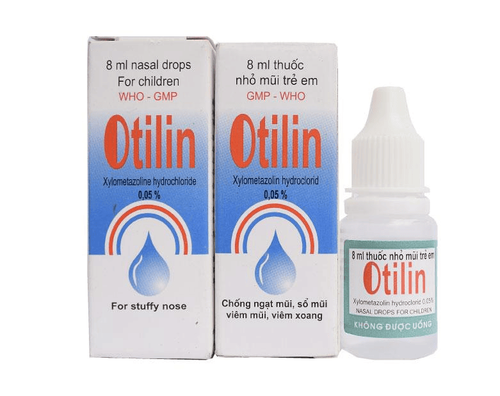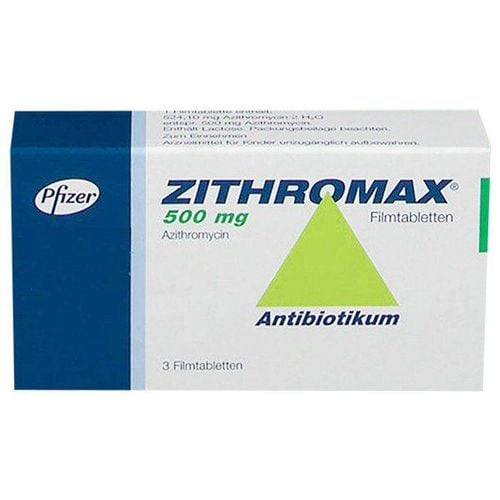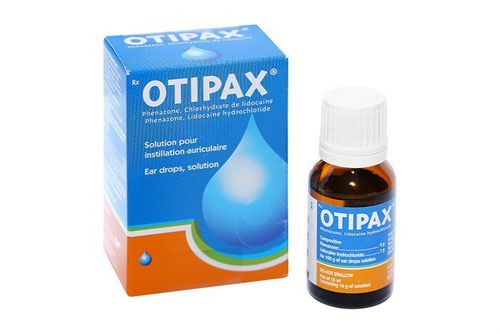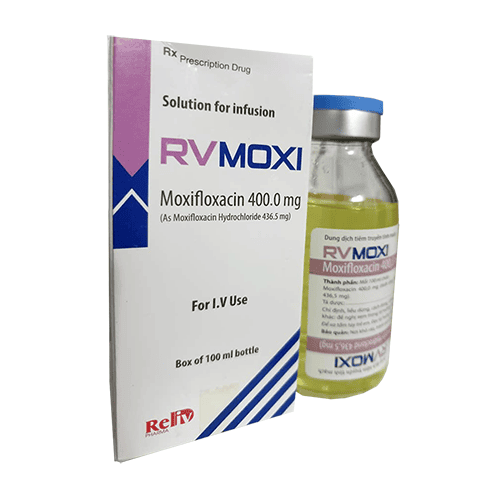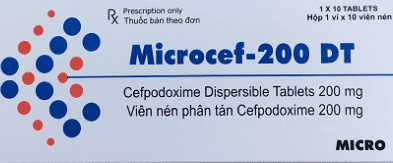This is an automatically translated article.
Medixam is prepared in the form of an oral suspension, with the main ingredient of the drug is Cefpodoxime proxetil, the content of 50mg/5ml of Cefpodoxime. So what are the uses of Medixam? How to use the drug?
1. Uses of Medixam
The main ingredient in Medixam is Cefpodoxime proxetil, this active ingredient belongs to the 3rd generation Cephalosporin group.
The antibacterial effect of Cefpodoxime is obtained through its ability to inhibit bacterial cell wall synthesis by acylation of enzymes. membrane-bound transpeptidases, thereby preventing the cross-linking of peptidoglycan chains required for bacterial cell wall strength and durability.
Cefpodoxime proxetil is active against Gram-positive and Gram-negative bacteria, stable activity against both β-lactamases. The antibacterial spectrum of Cefpodoxime includes Staphylococcus aureus with the exception of methicillin-resistant Staphylococci, Streptococcus pneumoniae, Streptococcus pyogenes, Streptococcus agalactiae and Streptococcus spp. other (Group C, F, G).
Gram-negative bacteria sensitive to Cefpodoxime include β-lactamase-producing and non-β-lactamase-producing strains of H. influenzae, Moraxella catarrhalis, H. para-influenzae, Neisseria meningitidis, Neisseria gonorrhoeae, Klebsiella pneumoniae, E. coli, Proteus vulgaris, Providencia rettgeri and Citrobacter diversus. Cefpodoxime is also effective against Peptostreptococcus spp.
Medixam is indicated in the following cases:
Upper respiratory tract infections, including: Acute otitis media, sinusitis, tonsillitis and pharyngitis. Community pneumonia. Uncomplicated acute gonococcal infection Uncomplicated urinary tract infection. Infections of the skin and subcutaneous structures. Medixam is contraindicated in the following cases:
People with hypersensitivity to the ingredients of Medixam. Care should be taken when using Medixam in the following cases:
People who are allergic to Penicillin. Elderly people have many diseases. Pregnant and lactating women: Only use Medixam for these subjects when absolutely necessary and under the direction of a doctor.
2. Dosage and how to use Medixam
Medixam is used orally, should be taken after meals. The dose of Medixam should be according to the doctor's prescription, the reference dose in the following specific cases:
Recommended dose of Medixam for adults:
Upper respiratory tract infections: Use a dose of 100mg/time , once every 12 hours, for 10 days. Community-acquired pneumonia: Use a dose of 200mg/time, once every 12 hours, for 14 days. Uncomplicated acute gonococcal infection: Use a single dose of 200mg. Uncomplicated urinary tract infections: Use a dose of 100mg/time, once every 12 hours, for 7 days. Skin and subcutaneous structure infections: Use a dose of 100mg/time, once every 12 hours, for 7-14 days. The recommended dose of Medixam for children is as follows:
Acute otitis media: Use a dose of 10mg/kg/day (maximum 400mg/day in 2 divided doses) for 10 days. Pharyngitis and tonsillitis: Use dose 10mg/kg/day (maximum 200mg/day) divided into 2 times, for 10 days. When there are abnormal symptoms due to an overdose of Medixam, you need to immediately contact your doctor or ask your loved ones to take you to the nearest medical facility for timely treatment.
If you forget a dose of Medixam, take it as soon as you remember. If it is almost time for your next dose of Medixam, skip the missed dose and take your next dose as usual.
3. Medixam side effects
Common side effects of Medixam include:
Nausea; Vomiting; Stomachache ; Diarrhea; Colitis ; Headache. Rare side effects of Medixam include:
Hypersensitivity reactions; A rash; Itching; Dizzy ; Thrombocytopenia; Thrombocytopenia; Leukopenia; Eosinophilia increased. During the use of Medixam, if you see any unusual symptoms, you should immediately notify your doctor or go to a medical facility for timely treatment.
4. Medixam interactions with other drugs
Coadministration of Medixam with antacids or H2 inhibitors will reduce plasma concentrations of cefpodoxime. Renal function should be monitored when Medixam is co-administered with compounds known to be nephrotoxic. Co-administration of Medixam with Probenecid increases the plasma concentration of Cefpodoxime. The Cefpodoxime in Medixam causes a false-positive direct Coomb test. Above is all information about Medixam, patients need to carefully read the instructions for use, consult a doctor / pharmacist before using. Note, Medixam is a prescription drug, patients need to use the drug as prescribed by the doctor, absolutely do not self-treat at home.




